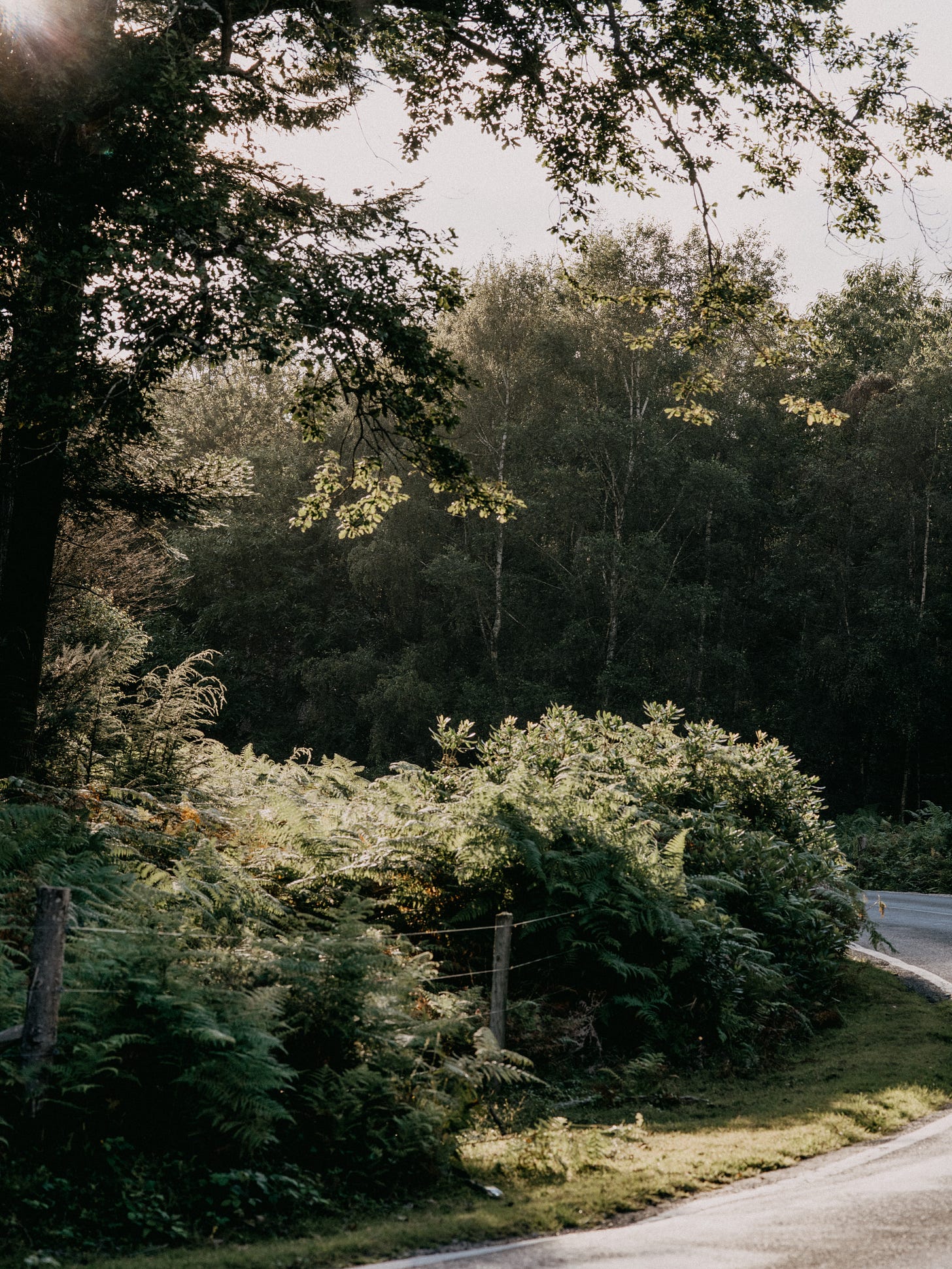Healing with nature in mind.
Reflections on the changing seasons.
“At times I feel like I am spread out over the landscape and inside things, and am myself living in every tree, in the splashing of the waves, in the clouds and the animals that come and go, in the procession of the seasons” - Carl Jung
I’ve been thinking a lot about the shift from summer into fall. This time of year always feels bittersweet as the slow, easeful, warm summer nights fade away. Fall and Winter come with their own blessings. However as a summer baby and a child of the Caribbean sun, it beckons a tension both physically, mentally and emotionally that lingers longer than the waning sunlight.
The seasons and their rhythms have always deeply inspired me, as well as the wisdom that nature offers us with its ability to heal and regenerate itself. Despite the current impending climate doom, I (and many others) still have hope for regeneration, hope and sustainable ecosystems between humans and the land we often carelessly inhabit. In Larry Robinson’s essay, Psychotherapy as if the World Mattered1, he argues that the symptoms and signs of mental distress commonly seen in therapy (anxiety, depression, isolation etc.), can be seen as symptoms of our disconnection with humanity and a loss of an organic interaction with nature.
The essay outlines how doom, anxiety, despair and self doubt can be viewed as the end result of shaping ourselves into “machinery” that can be serviced and optimized for productivity, as opposed to remembering that we are simply human, an organic and natural extension of our environment. According to Robinson, alienation, isolation and misery occur because we have reduced ourselves to objects that require certainty, perfection, and efficiency.
This conflicts between the reality that humans have just as much soul and vitality as the living, breathing world around us, which manifests in experiences of disconnection, loss of meaning, and emptiness. Saving ourselves and healing our collective anxieties means exploring our link to the natural world. “You are not an imperfect machine” he writes, “but a mysterious being in a world that is alive with mystery.” Robinson goes on to explain that human beings with their wide variety of ways to interact with the living world are naturally “sensual, curious and creative” — the opposite of the machine like objectification of our bodies, our labour and our essence.
Our environment and organic systems have a tendency towards wholeness and complexity. It soothes me to remember that we in fact are not machines - we are beings full of soul, ambiguity, and imprecision. To me, it is worth remembering that the aliveness of nature within us can awaken our senses and remind us that life is within us just as much as it is around us. We can be rooted and centered in our bodies and minds in the same way that we observe the gentle stoicism of the natural world and its rhythms.
When this summer season fades, your inner warmth will still linger. Let this moment be its own gift. An unraveling piece of time that is unconcerned with where it begins and ends. You are not too late to feel deeply, and peel back the layers of the person you thought you needed to be. The person beyond the rigid demands of our modern society, and the urgency of productivity and stress.
Unmasking, healing and internal expansion has no time frame, and no seasonal stop. Our world is alive with mystery. We can restore our souls by connecting with our environment, re-animating our community, and embracing the dynamic balance of reciprocity, imperfection and beauty that surrounds us. The feeling of wholeness is made more real by embracing the connection of the complex interconnected web of people, animals, plants, oceans, stars and the land.
Reflecting on this wisdom makes room for the consideration that changing routines, rhythms, and seasons allow us the space and grace to remain vital and whole. Paying attention to these changes with mindfulness and acceptance can create a sense of peace within. Slowing down into our bodies and taking notes from nature is a worthwhile exercise. Nature does not exist on a timeline or demand perfection. Sustainable growth often requires a tolerance of ambiguity and a commitment to accountability.
Changes and the anxiety of change — whether it is simply the change of the seasons, or larger more complicated changes in our lives, need as much openness, flexibility and persistence as hardy weeds emerging from cracks in concrete.
Nature always finds a way, and you will too.
Larry Robinson, ‘Psychotherapy as if the World Mattered’, in Ecotherapy, ed. Linda Buzzell and Craig Chalquist (Berkeley CA: Counterpoint, 2009), 24-29).


